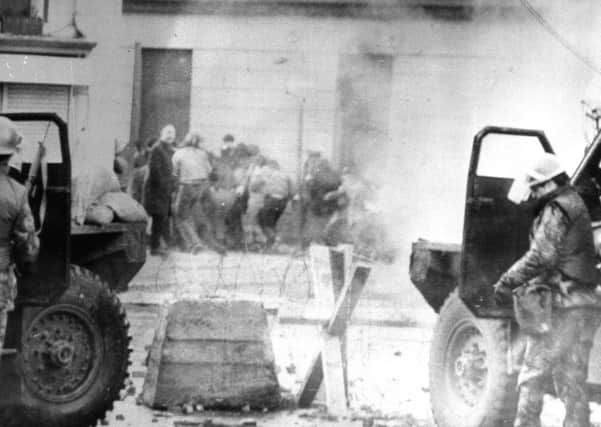Forces veterans call for review on legacy case sentences


Provisions within the Good Friday Agreement (GFA) allowing for the early release of terrorists involved in the Northern Ireland conflict do not include killings prior to 1973.
This means anyone found guilty of Troubles-related offences before 1973 will be jailed for life.
Advertisement
Hide AdAdvertisement
Hide AdConvicted paramilitary terrorists served two years under the GFA arrangements.
One of the biggest legacy cases currently under investigation is the shootings of civil rights marchers in Londonderry in 1972 by members of the Army’s Parachute Regiment.
Prosecutors are considering whether various charges should be brought against 18 soldiers over their involvement.
Thirteen people were shot dead when soldiers opened fire on innocent civil rights demonstrators. A 14th person died later.
If convicted, the veterans face life sentences.
Advertisement
Hide AdAdvertisement
Hide AdEx-soldier Mike Harmson, a member of the Veterans Party lobby group, called on the government to review the law so it “reflects the injustices that many veterans are experiencing”.
“I think the UK government should seriously review the current policy on investigating alleged historical offences committed by the military.
“How can the PPS seriously consider charges against veterans for offences committed in the early 1970s when the UK government handed ‘letters of comfort’ allowing wanted IRA terrorists to escape justice.
“I feel that the UK government should allow veterans accused of offences to be afforded the same consideration,” he said.
Advertisement
Hide AdAdvertisement
Hide AdMr Harmson, who served in Northern Ireland during the conflict, added: “The bravery and sacrifices of military veterans has been brushed under the carpet by those who wish to rewrite the history of our Troubles.”
Dr Jonny Byrne said the sentencing release provisions in the GFA were not designed to deal with legacy.
“In hindsight it would have been appropriate for the provision to begin in 1969 as opposed to 1973.
“It’s simply a reflection of people at that time not realising the implication of dealing with the legacy of the past,” added Dr Byrne.